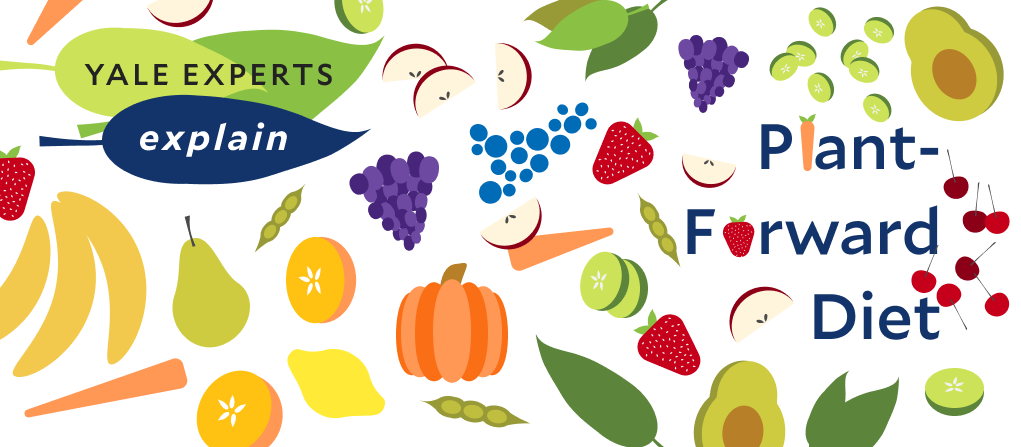
April 18, 2020
Associate Vice President of Yale Hospitality Rafi Taherian breaks down a chef’s terminology for sustainably reducing your meat consumption.
What does it mean to be ‘plant forward’?
A plant-forward diet is one that prioritizes and celebrates minimally processed plant-based foods, but is not restricted to them. The key components of a plant-forward diet include legumes, whole grains, local and seasonal vegetables and produce, nuts and oils, herbs and spices, and a yes, even a small quantity of responsibly produced animal protein.
“The concept of the plant-forward diet is making plants the most significant part of the dish,” said Rafi Taherian, Associate Vice President of Yale Hospitality. “If there is protein, the first priority is a plant-based protein. If there is an animal-based protein, it is not at the center of the plate, but rather a contributor to the plate.”
Inspiration for this dietary framework comes from Mediterranean-style diets, where animal protein is used as a flavoring to a dish, not as its foundation.
What makes it different than a vegetarian or vegan diet?
A plant-forward diet differs greatly from other popular diets that promote a transition away from meat. For example, a vegetarian diet eliminates meat and fish, and a vegan diet excludes all animal products or byproducts, including all meat, dairy, eggs, and honey.
By comparison, a plant-forward diet is less restrictive but arguably more thoughtful about what gets swapped in. Both vegan and vegetarian diets allow for highly processed meat substitutes and treats, whereas a plant-forward diet emphasizes unprocessed foods.
What are the benefits of going plant-forward?
A plant-forward diet brings numerous advantages – both for your body and for the Earth.
Taherian explains that a plant-forward diet has proven to reduce the risks of heart diseases, type 2 diabetes and unwanted weight. As for the environment, eating less meat significantly reduces the carbon emissions as well as land, energy, and water consumption associated with your meal choices.
“When it comes to consuming the animal product of agriculture, humans are secondary, tertiary, or even further down the food chain,” Taherian said, adding that each hop in the food chain causes adverse environmental impacts. “A plant forward diet eliminates steps and reduces the environmental impact.”
How can I make the switch?
While the benefits of reducing meat consumption are clear, behavior change isn’t sustainable unless the change is something one actually enjoys.
“It’s not just about nutritious,” Taherian says. “It’s also about deliciousness.”
Taherian explains that in Western cultures, our favorite memories of celebration and indulgence are often accompanied with thoughts of generous portions of meat. Deconstructing that culture begins with looking outward and exploring the cuisines of other cultures.
“Start looking at countries where celebration isn’t about meals with animal-based protein, and allow yourself to be inspired by them,” Taherian said. “There is so much opportunity in studying the uses of spices and fresh vegetables in other cultures.”
Having a plant forward diet is also a way to bring creativity and innovation into a kitchen of any size. For Yale, this meant “sneaking” mushrooms into the dining hall’s hamburgers, creating what became known as the nation’s first blended burger and an instant favorite among students.
Taherian suggests starting slowly by integrating vegetables and grains into your favorite recipes while substituting out small portions of animal protein. By doing so, you’ll begin to gain new cooking skills, expand your palate, and achieve your own principles of personal health, wellbeing and sustainability – all without restriction
What is Yale Doing?
Over 80% of the food served in Yale’s residential dining halls is plant-based, and there are vegan and vegetarian options available at every meal. Yale Hospitality has integrated sustainability values in every aspect of its operations, procurement, and menus. Over 40% of the food purchased by Yale Hospitality meets at least one of four sustainability criteria: local, humane, fair, produced with eco-sensitive agricultural practices. For more on their sustainability efforts, visit Yale Hospitality’s website.